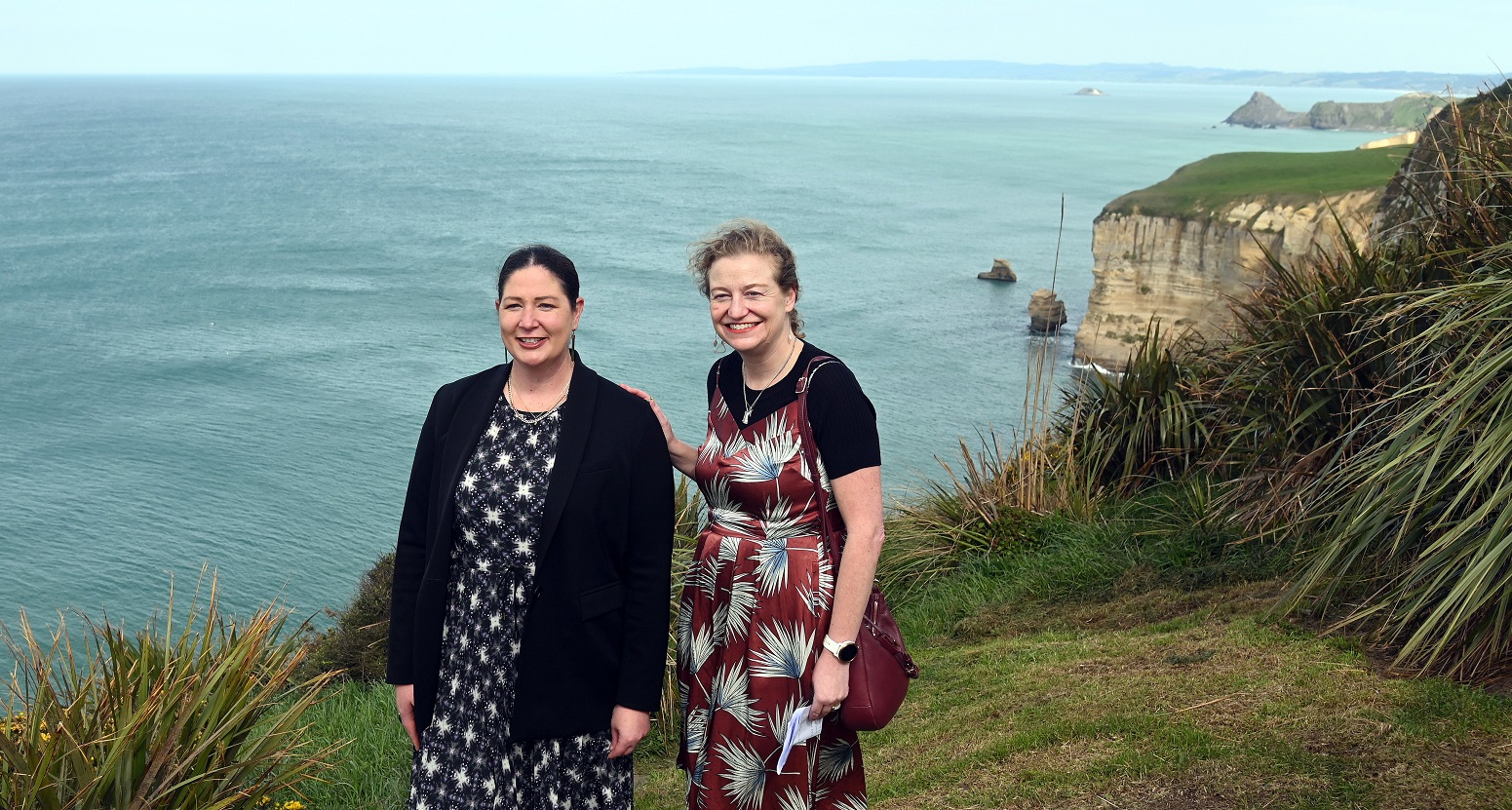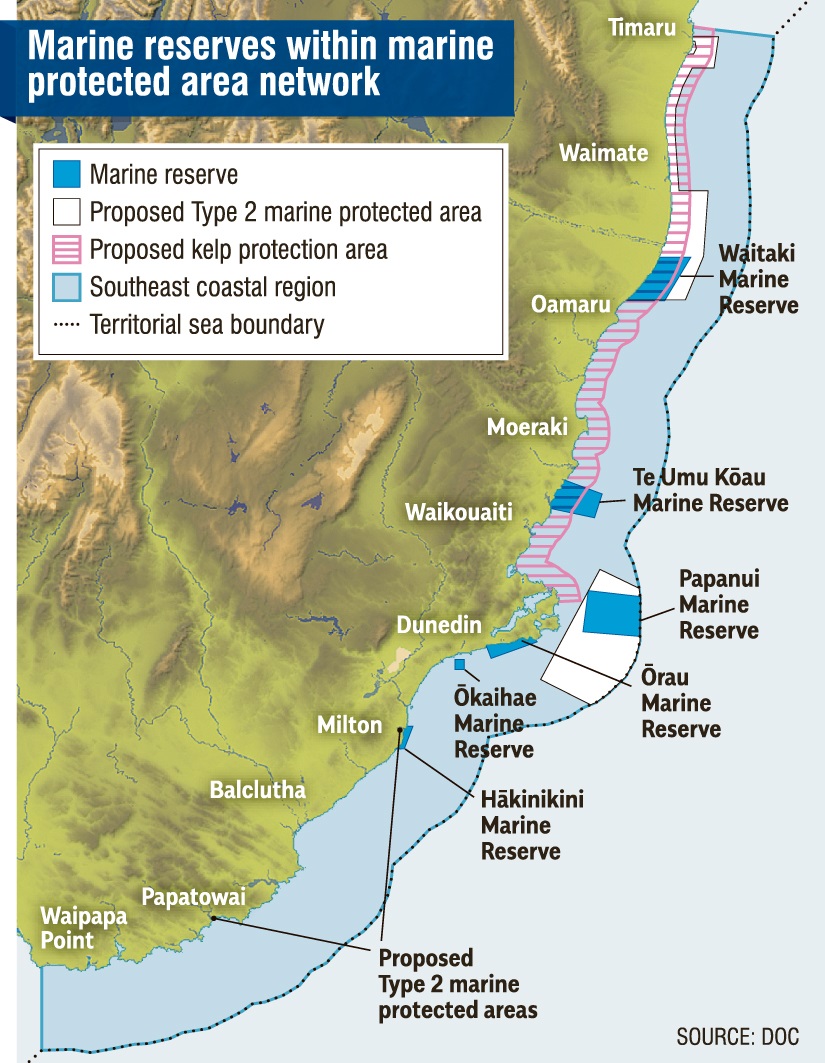Six new "national parks of the sea" off the Otago coast will include nationally significant protections for marine life and will be a huge asset for Dunedin, proponents say.
The fishing industry, on the other hand, is furious, calling it "a box-ticking exercise under the guise of consultation".
Conservation Minister Willow-Jean Prime and Oceans and Fisheries Minister Rachel Brooking announced six new marine reserves along Otago’s coast yesterday, from the Waitaki River to Watsons Beach, near Milton.
Ms Prime said they were the first marine reserves created in New Zealand since 2014 and represented an immense opportunity for learning and research.
During consultation in 2020, 90% of more than 4000 submissions showed broad support for the protected marine areas.
The "six new national parks of the sea" would not stop families from fishing, she said.
"There’s still plenty of places to fish, but this is important because of what’s under the water and how significant it is for marine biodiversity," Ms Prime said.

In 2019, then-conservation minister Eugenie Sage and then-fisheries minister Stuart Nash directed agencies to proceed with "network one", which included the six marine reserves.
Ms Prime said she made two adjustments to the original proposal.
The first was excluding about 8sq km from a marine reserve north of the Pleasant River mouth, to carve out "the church", an area important to the rock lobster industry.
She adjusted another marine reserve, which extends from Sandfly Bay along the Otago Peninsula coast to White Island, off St Clair Beach, to allow the Otago Regional Council to continue its flood mitigation works.
Ms Brooking said she had yet to receive advice on the other proposals in network one — which included less restrictive "type 2 marine protected areas" and a kelp protection area.
Upoko o Ōtākou Rūnaka Edward Ellison, who was deputy chairman of the marine protection forum, said while the forum had been convened in April 2014, Kāi Tahu had been involved in the process to establish protected marine areas for more than 30 years.
It had been "very contentious process invariably" even among mana whenua.

Dunedin conservation stalwart and forum member Sue Maturin said the protected areas did not cover all the coastal habitats in the forum’s area of interest and it was disappointing that yesterday’s announcement had not included the type 2 marine protected areas.
Nevertheless, it was ‘‘very exciting’’.
‘‘Hopefully over time it’ll become an area that is abundant with fish,’’ she said.
‘‘It should become a huge asset for Dunedin city.’’
The Papanui Marine Reserve, incorporating Papanui Canyon, was important habitat for whales, and large seabirds, and would be ‘‘nationally significant’’, she said.
Oamaru Blue Penguin Colony science and environmental manager Dr Philippa Agnew said the type 2 marine protected areas should be implemented with some urgency.
She had tracked little penguins from Oamaru north of the Waitaki River where a type 2 protected area was proposed, but as yet was not protected.
The type 2 area proposed for near the Papanui Marine Reserve — if implemented — would offer much need protection for yellow-eyed penguins, Dr Agnew said.
However, Tautuku Fishing Club president Brett Bensemann said the process was flawed and "anything but collaborative".
It was an "unprecedented" announcement, given voting in the general election had already begun "which contradicts the long-standing convention on caretaker government".
Chanel Gardner, who represents local rock lobster interests and also Harbour Fish, said the Otago marine area was not at risk and its ecosystems were not under pressure.
"It erodes our export value and the economic viability of those who feed our communities with fish, commercial and recreational fishers.
"Doc [Department of Conservation] have arrogantly ignored the pleas, suggestions and solutions of submitters in a box-ticking exercise under the guise of consultation," she said.
"Sadly the only ones happy here are the ones who have never used our ocean space."
— Additional reporting Sally Rae












